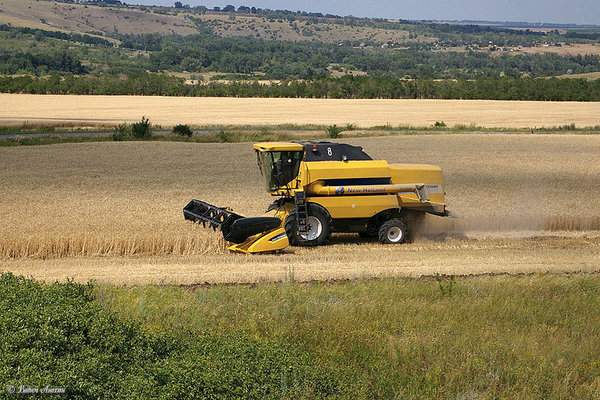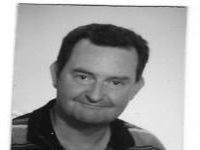Russia: clear vision and a diversified economy
As the Washington-orchestrated sanctions are imposed and obediently increased by its chihuahuas in Europe, many are those who question why Russia's economy had not been diversified years ago. The answer to this question is that the plans have been in place since President Putin stepped onto the stage and the results are clear to see. Read on.

An interesting article entitled Plentiful Harvests in Eurasia: Why some farms in Russia, Ukraine, Belarus and Armenia are thriving despite institutional challenges, written by Professor Susanne Wengle* in PONARS Policy Memo this week points towards a scenario that heralds success in the short-term. A clear indication of this is the rising output in cereals, dairy and fruit production in the four ex-Soviet countries referred to in the article - in Russia's case, wheat. And a key to this was the intelligent policy followed in Russia since the turn of the century, when Vladimir Putin stepped onto the scene.
The article mentions "selective reforms and policies aimed at attracting foreign investment" along with State support tailored for sectors which were seen to hold "competitive advantages", aiming for a long-term vision of diversification of the economy and a move away from mineral exports as a means to sustainable development. The genius was in the targeted subsidies to rising stars in the agricultural sector and the strategic planning that this involved.
Long-term strategic planning
The article chooses the year 2000 when investment started to increase by foreign and domestic players in arable lands and as capital flowed into the countryside, production began to increase, in Russia's case the inflow of fixed capital investment increasing by over ten times between 2000 and 2015, foreign direct investment increasing by four times from 2004 to 2013 giving rise to the appearance of the New Agricultural Operators, or NAOs; these are large-scale operations with vast areas of arable land in the most fertile regions of Russia, created by merging land leased or bought from the former collective farms.
What a lot of people do not realize is the fact that many of these NAOs count on the investment of companies precisely from the countries imposing sanctions upon Russia, a clear sign that the sanctions issue is a mismanaged, futile, stupid and hypocritical attempt to hurt Russia through any means possible without thinking through the consequences. The fact is that so well are these operations performing that they are able to withstand the sanctions and as regards imports, alternative suppliers are queueing up to supply Russia with their goods (such as cheese from latin America) - so the end-consumer continues to put the same produce on the table, more cheaply, and those who suffer are the sanctions-bullies.
Russia is the world's largest exporter of wheat
Fact. Russia was in 2016 the world's largest exporter of wheat, increasing its output by 35 million metric tons in just two decades. This is the fruit of a long-term strategic vision and policy, implemented throughout the term of Vladimir Putin as helmsman of Russia, which has systematically reduced the dependence on exports and has fostered internal production in diverse areas outside the sector of mineral production. The revenue from oil was ploughted into the agricultural sector and the result is today clear to see. State support for the sector increased threefold from 2010 to 2015 as a mixed package of measures took effect (credits, tax breaks, subsidies, implementation of cutting-edge technology, improvement of transportation hubs and means of access).
The article concludes: "Promising to realize the goal of increasing domestic production, these actors have thrived under what could be called "umbrellas" that protect property rights and provide investment on a long time horizon...".
Susanne Wengle is Assistant Professor in the Department of Political Science at the University of Notre Dame and concurrent faculty in the Keough School of Global Affairs.
Photo By Вадим Анохин - Own work, CC BY-SA 3.0, https://commons.wikimedia.org/w/index.php?curid=8190404
Timothy Bancroft-Hinchey
Pravda.Ru
Twitter: @TimothyBHinchey
timothy.hinchey@gmail.com

*Timothy Bancroft-Hinchey has worked as a correspondent, journalist, deputy editor, editor, chief editor, director, project manager, executive director, partner and owner of printed and online daily, weekly, monthly and yearly publications, TV stations and media groups printed, aired and distributed in Angola, Brazil, Cape Verde, East Timor, Guinea-Bissau, Portugal, Mozambique and São Tomé and Principe Isles; the Russian Foreign Ministry publication Dialog and the Cuban Foreign Ministry Official Publications. He has spent the last two decades in humanitarian projects, connecting communities, working to document and catalog disappearing languages, cultures, traditions, working to network with the LGBT communities helping to set up shelters for abused or frightened victims and as Media Partner with UN Women, working to foster the UN Women project to fight against gender violence and to strive for an end to sexism, racism and homophobia. A Vegan, he is also a Media Partner of Humane Society International, fighting for animal rights. He is Director and Chief Editor of the Portuguese version of Pravda.Ru.
Subscribe to Pravda.Ru Telegram channel, Facebook, RSS!





